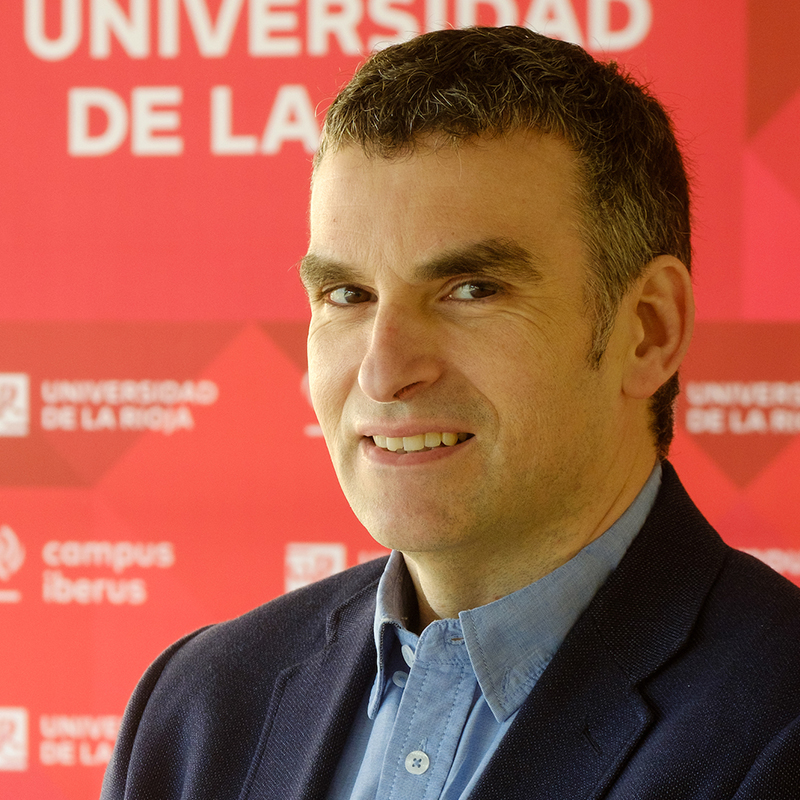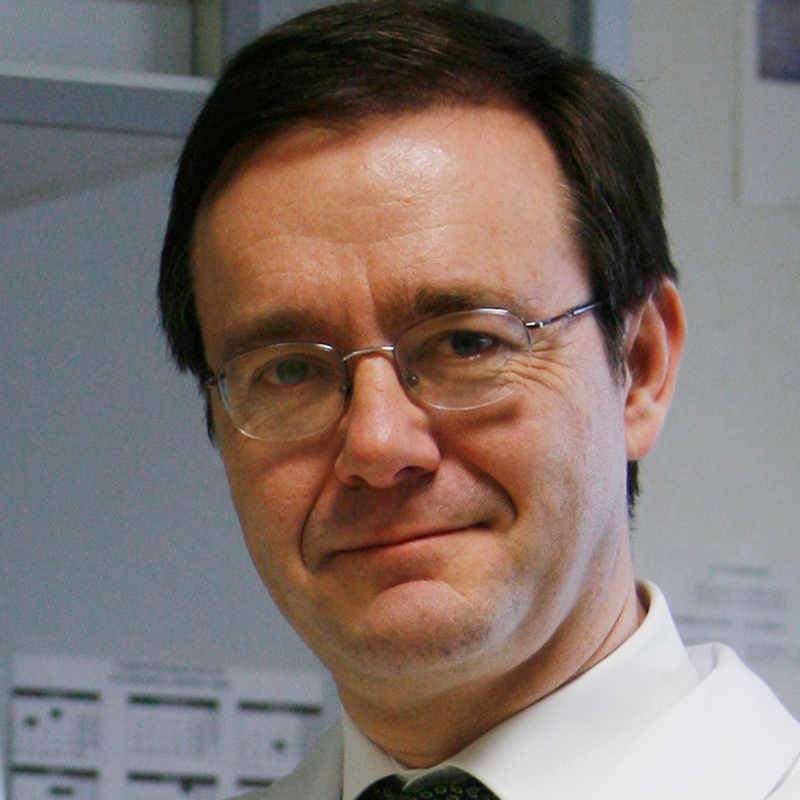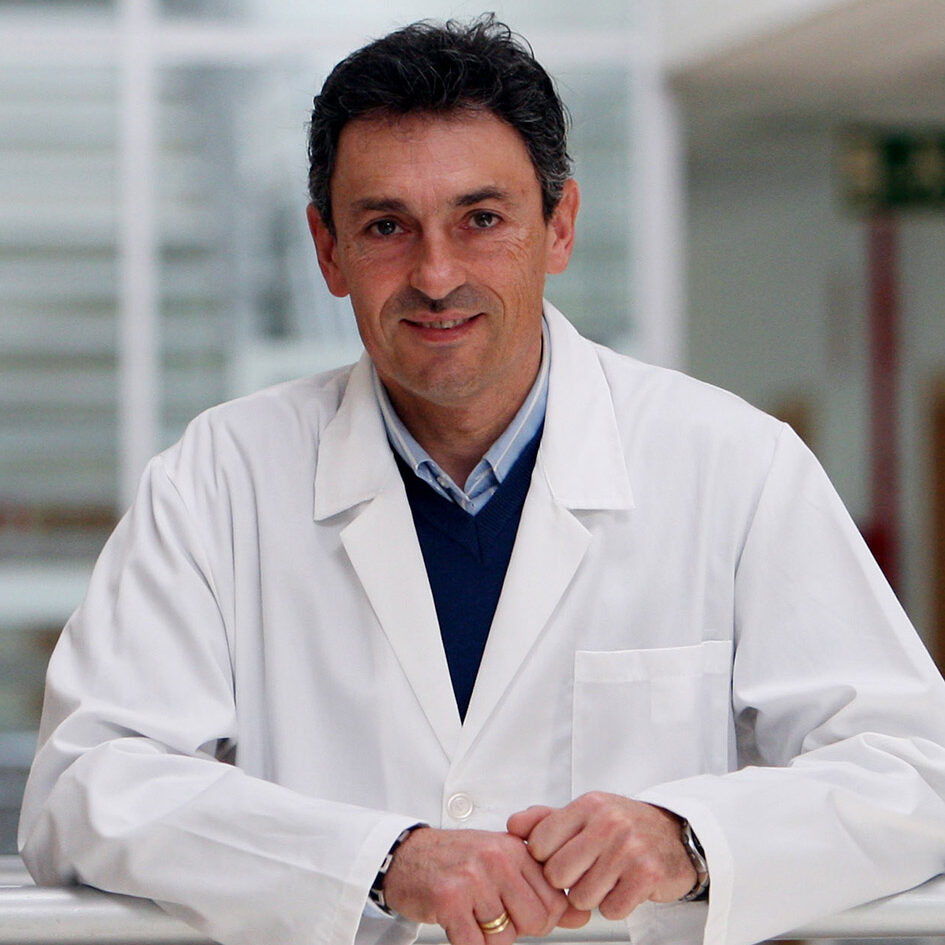AREA
CTQ/ Chemical Sciences and Technology
SUB AREA
QMC/ Chemistry
KEYWORDS
SYNTHESIS OF GLYCOPEPTIDES; NMR EXPERIMENTS; MOLECULAR DYNAMIC SIMULATIONS; CLINICAL APPLICATIONS; TUMOR DETECTION; ANTICANCER VACCINES; UNNATURAL ANTIGENS; MUC1-LIKE GLYCOPEPTIDES; GOLD NANOPARTICLES; BIOFUNCTIONALISED NANOPARTICLES; ANTIBODY DETECTION; NANOPARTICLE-BASED VACCINE DEVELOPMENT; MICE EXPERIMENTATION.
SUPERVISORY TEAM

ASSOCIATE PROF. FRANCISCO CORZANA
Supervisor
Dr. Corzana obtained his PhD in Chemistry at the University of La Rioja (UR) in 2001, after which he completed 2 postdoctoral stays; one at the University of Copenhagen, where he worked on the conformational analysis of carbohydrates by Molecular Dynamics (MD) simulations, and another at the CIB (CSIC) in Madrid with Dr. Jiménez Barbero, where he worked on the synthesis of aminoglycoside antibiotics and their conformational analysis in solution by NMR and MD simulations. In 2005, he came back to UR as a “Ramon y Cajal” researcher and has a permanent position at this university as Associate Professor. His research focuses on the synthesis and structure of glycopeptides and their use in clinical applications (tumor detection and vaccines against cancer). He has made three short visits, one to the University of Oxford in 2012, with Prof. Ben Davis, and two visits to the University of Cambridge (2014 & 2016), with Dr Bernardes. He has published more than 130 papers and given 20 invited talks. He is currently a visiting professor at the University of Cambridge. He has 4 research periods of six years and has supervised 6 dissertations in the last 10 years. He is the PI of a national research project (RTI2018-099592-B-C21) and a European project (H2020-MSCA-ITN-2020, DIRNANO) at UR.

ALFREDO MARTÍNEZ
Co-Supervisor
Dr. Alfredo Martínez is a lead researcher at the Centre of Biomedical Research of La Rioja (CIBIR) of the Fundación Rioja Salud (FRS). He holds a PhD in Cell Biology (Univ. of Navarra, Pamplona). He performed post-doctoral training in Vancouver (University of British Columbia), Dublin (Trinity College), and London (Hammersmith Hospital). He spent 11 years at the National Cancer Institute (NIH, Bethesda, MD, USA) as a Visiting/Staff Scientist under the supervision of Dr Frank Cuttitta. He returned to Spain in 2004 to lead a research team at the Cajal Institute (Spanish Council for Scientific Research, CSIC) in Madrid. In 2008 he got his current position of Group Leader at the Oncology Area of the CIBIR. His main line of work centers on the development of new therapies in the fight against cancer and other clinically relevant diseases. His studies usually involve genetically engineered mice as well as cutting-edge techniques at the molecular and cellular level. He has led several clinical trials based on basic observations made by his group. Dr Martínez´s curriculum contains more than 200 publications (H index = 48) and he has been the principal investigator of numerous national and international (European and American) research grants.

PROF. JESÚS MANUEL PEREGRINA
Co-Supervisor
Dr. Peregrina obtained his Ph.D. degree in Chemistry from the UZ in 1992. He was hired by the University of La Rioja (UR) in 1992, and in 1997 he obtained the position of Associate Professor of University in the Chemistry Department of the UR. In 2009 he got the rank of Full Professor at UR.
He has recognized 6 periods of teaching and 5 of research.
His research is focused on the stereoselective synthesis of non-natural amino acids and its incorporation into glycopeptides. As expertise in nuclear magnetic resonance (NMR), his major interest is related to the structure of glycopeptides and their use in clinical applications (tumor
detection and anticancer vaccines). He has published 150 papers, >100 of them in Q1 (h 30). He has supervised 17 doctoral theses. He was the Chairman (2014-16) of the Specialized Group of Carbohydrates (Royal Spanish Chemical Society) and Vice-Chairman to present. He has been the PI of several research projects.
RESEARCH GROUP
DESCRIPTION
Our research group has expertise in the ‘health technologies‘ field. The group is currently composed of 5 senior members: Jesús Manuel Peregrina and Alberto Avenoza (Full Professors) and Francisco Corzana, Jesús Héctor Busto and Marimar Zurbano (Associate Professors), two postdoctoral researcher (Fayna García –Beatriz Galindo– and Ester Jiménez –Juan de la Cierva–) and 3 PhD students (Pablo Tovillas, Alicia Asín and Paula Oroz Mateo). In the last 5 years, the group has supervised 11 PhD theses.
We are working on the following research lines:
1) Vaccines against cancer: Vaccines that have a mimic of the Tn antigen instead of the native determinant may be more resistant to degradation, which could translate into increased bioavailability in vivo and a more robust immune response. Therefore, we use unnatural antigens presented on the surface of gold nanoparticles. Part of this research is being developed within the European project H2020-MSCA-ITN-DIRNANO (Directing the immune response through designed nanomaterial).
2) New biosensors based on unnatural MUC1-like glycopeptides for early detection of cancer: Using structural biology approaches, we are synthesizing new glycopeptides with unnatural amino acids that will provide the next generation of structure-based antigens characterized by improved affinity for anti-MUC1 antibodies compared to natural antigens. These antigens will be used to detect antibodies in patient sera from various cancer types.
3) Site-selective protein modification: thanks to the participation in the ITN project “ProteinConjugates”, new bioorthogonal reactions have been developed to conjugate different drugs with antibodies that selectively and efficiently recognize tumors.
The group is currently collaborating with various researchers around the world. In particular, there is an ongoing collaboration with Dr Alfredo Martínez (CIBIR, La Rioja, Spain) and with Dr Roberto Fiammengo (IIT – University of Verona, Italy) in MSCA ITN projects.
OUTPUTS OF RELEVANCE
H2020-MSCA-ITN-2015 project entitled ‘A training network for the chemical site-selective modification of proteins: Preparation of the next generation of therapeutic chemically-defined protein conjugates – ProteinConjugates–’ (proposal number: 675007). Grant: 2,542,770.72 €.
RTI2018-099592-B-C21 project entitled ’Structure-based design of (glyco)peptides and proteins for therapy and diagnostic’. Agencia Estatal Investigación of Spain. Grant: 236.000 €.
H2020-MSCA-ITN-2020 project entitled ‘Directing the immune response through designed nanomaterials – DIRNANO –’ (proposal number: 956544: 956544). European Commission. Grant: 4,027,501.44 €.
NETWORK OF COLLABORATORS
Centre of Biomedical Research of La Rioja (CIBIR) of the Fundación Rioja Salud (FRS), Logroño, La Rioja, Spain.
University of Verona, Italy.
University of Cambridge, UK.
CAREER DEVELOPMENT
PROPOSED SECONDMENT
A secondment for 6 months will be done at CIBIR (Logroño, La Rioja) in Dr. Alfredo Martínez’ unit in the Oncology Research Area to perform the research related to animal experiments. During this secondment at CIBIR, the postdoctoral fellow will learn how to handle experimental animals, draw blood, and characterize the immune response using biological techniques (ELISA, flow cytometry, etc.).
Additionally, a research secondment for 6 months will be followed at the university of Verona in Dr. Fiammengo’s research group. The fellow will have access to the equipment of the Dept. of Biotechnology of the University of Verona and will get training in the preparation of nano-particle based vaccine formulations and characterization of biofunctionalized nanoparticles.
DESIRABLE DEVELOPMENT
Trainings
International mobility
Building collaborative networks
Teaching and supervision
TRAINING SKILLS
Project management
Grant writing
Time Management
Leadership
Ethics in research
Entrepreneurship
Specific skills:
OTHERS
The SARS-CoV-2 coronavirus pandemic has been the most significant attack on the world’s health systems because of its extraordinary transmission speed and respiratory morbidity. One of the best ways to prevent infectious diseases is through vaccine development. Here we propose the design and characterization of a vaccine with multiple epitopes based on the virus surface glycoprotein, and in particularly on the new variants, employing unnatural residues that prolong the half-life of the antigen, activating sequences of T and B responses, and gold nanoparticles that direct the antigens directly to the presenting cells. Several of these structures will be synthesized, and their immunogenic capacity and toxicity will be tested in mice. The best candidate will be proposed for clinical development.
The postdoctoral researcher will perform the synthesis and conformational analysis of the novel glycopeptides (by combining NMR experiments and molecular dynamics simulations) in Dr. Corzana´s group. The postdoctoral researcher will have access to the Department of Biotechnology equipment of the University of Verona and will get training in the preparation of nanoparticle-based vaccine formulations and the characterization of biofunctionalized nanoparticles. Finally, the experiments in vivo (in mice) will be accomplished in Dr. Martinez´s lab at CIBIR.


